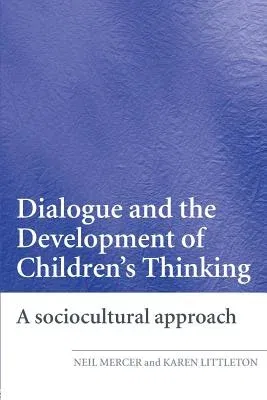Neil Mercer
(Author)Dialogue and the Development of Children's Thinking: A Sociocultural ApproachPaperback, 28 June 2007

Qty
1
Turbo
Ships in 2 - 3 days
Only 3 left
Free Delivery
Cash on Delivery
15 Days
Free Returns
Secure Checkout

Print Length
164 pages
Language
English
Publisher
Routledge
Date Published
28 Jun 2007
ISBN-10
0415404797
ISBN-13
9780415404792
Description
Product Details
Authors:
Book Format:
Paperback
Country of Origin:
GB
Date Published:
28 June 2007
Dimensions:
23.06 x
16.71 x
1.12 cm
Genre:
Education
ISBN-10:
0415404797
ISBN-13:
9780415404792
Language:
English
Location:
Oxford
Pages:
164
Publisher:
Weight:
276.69 gm